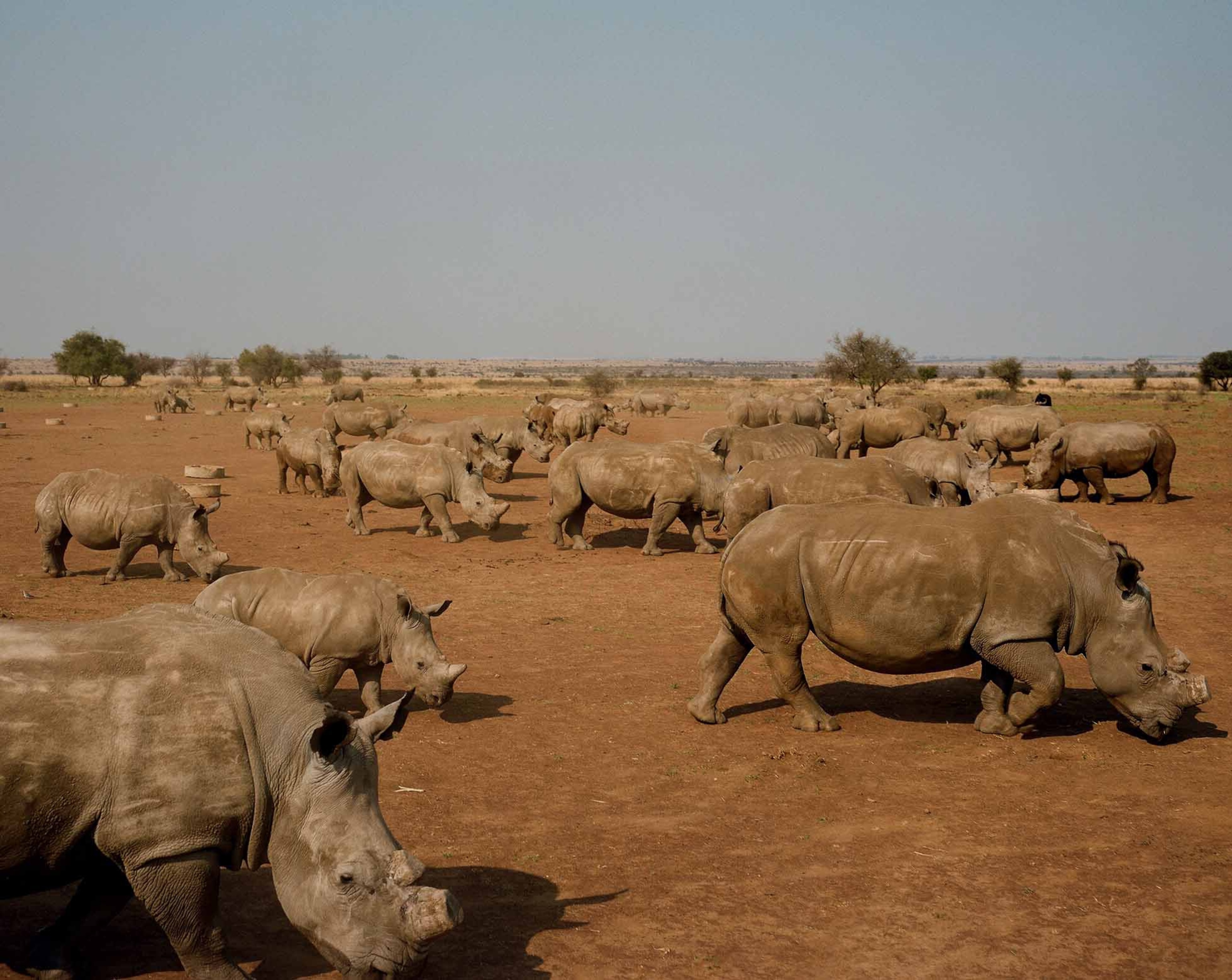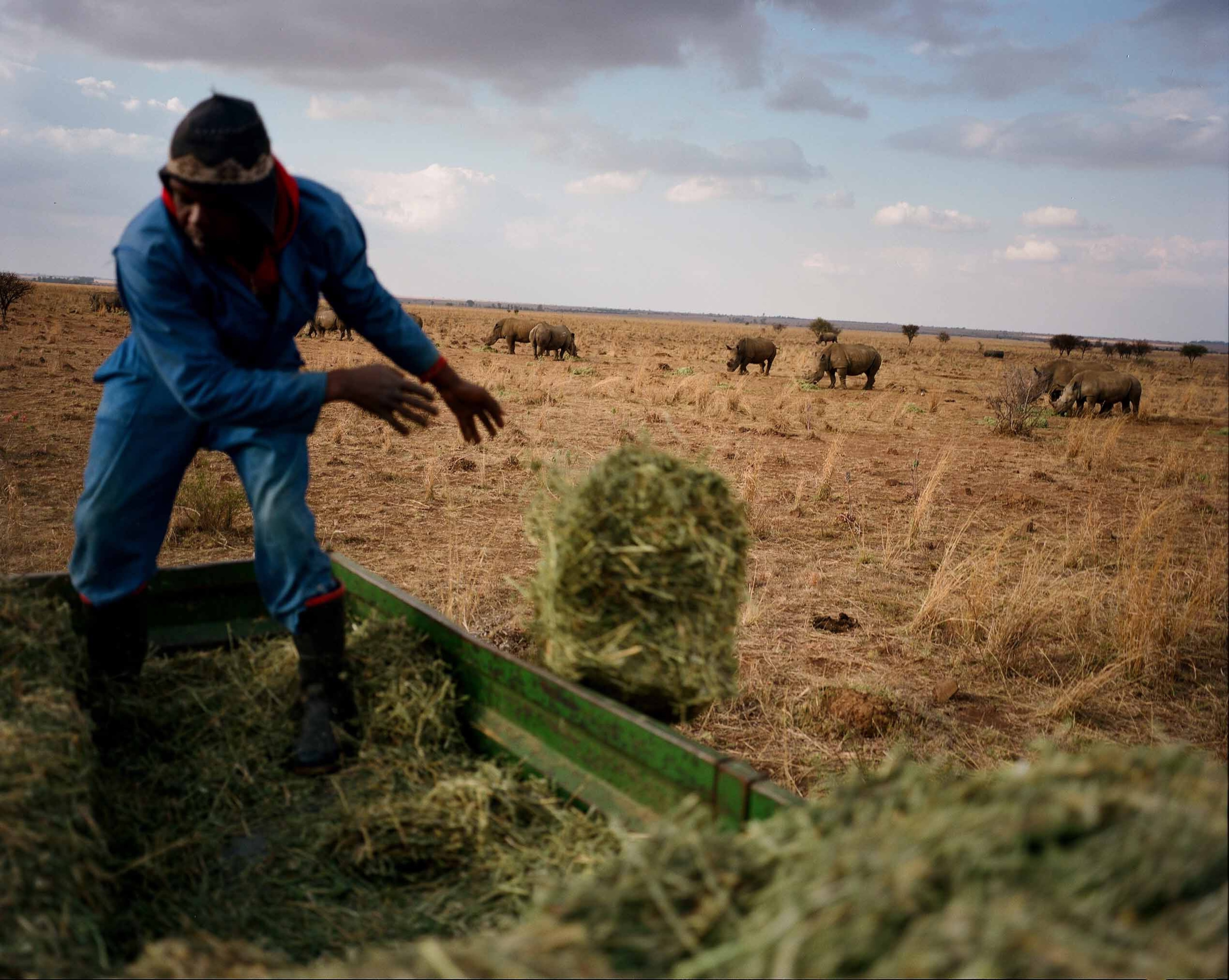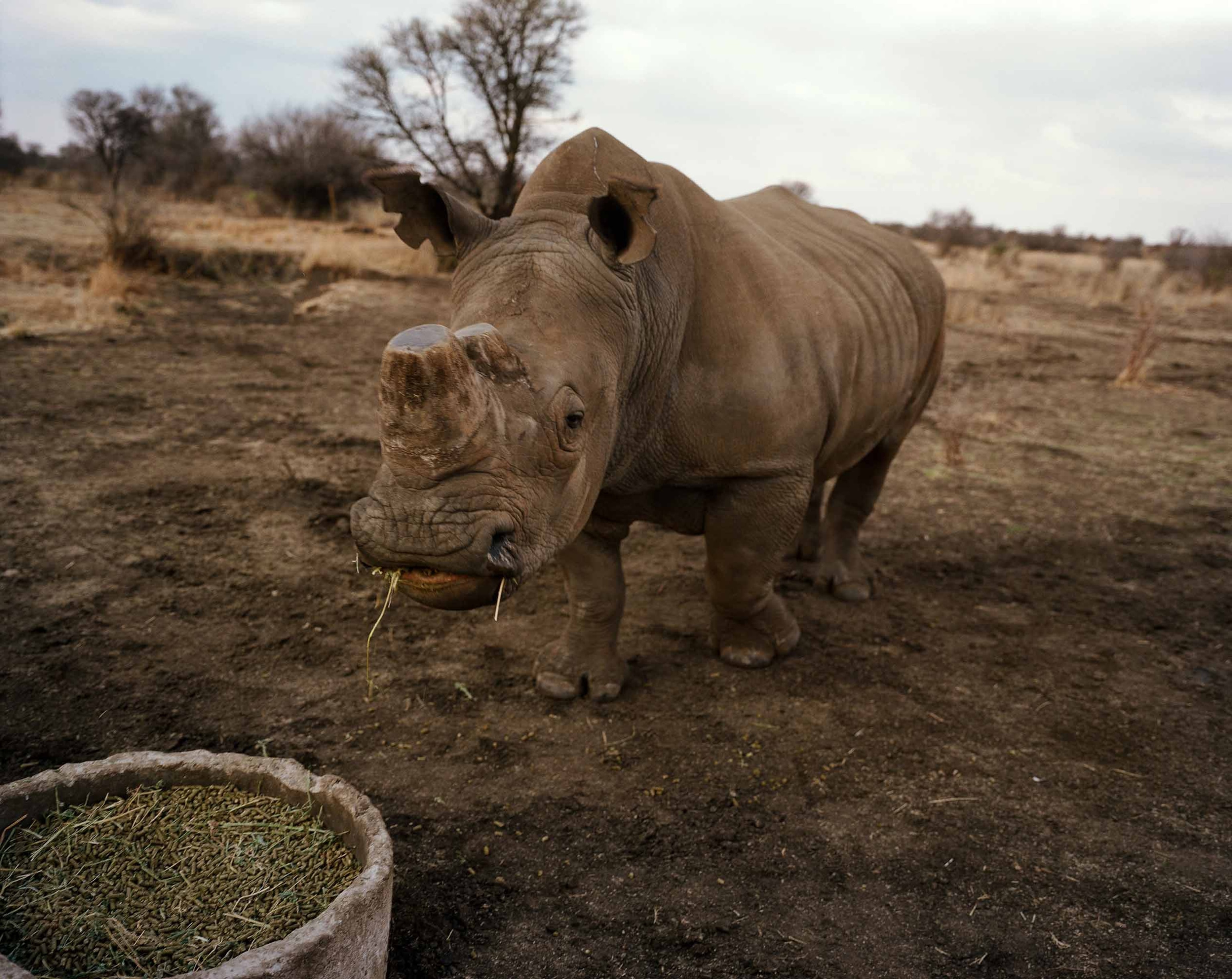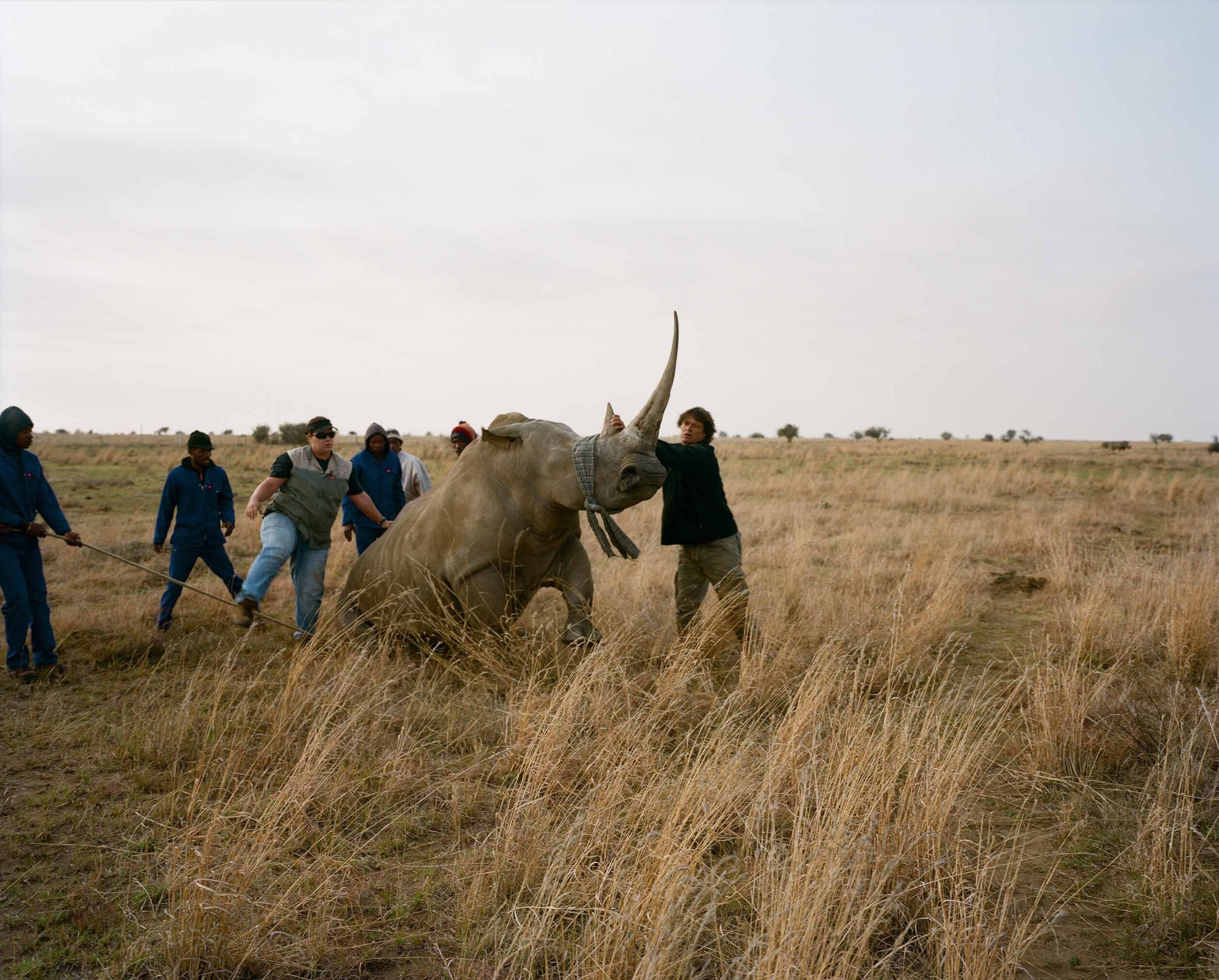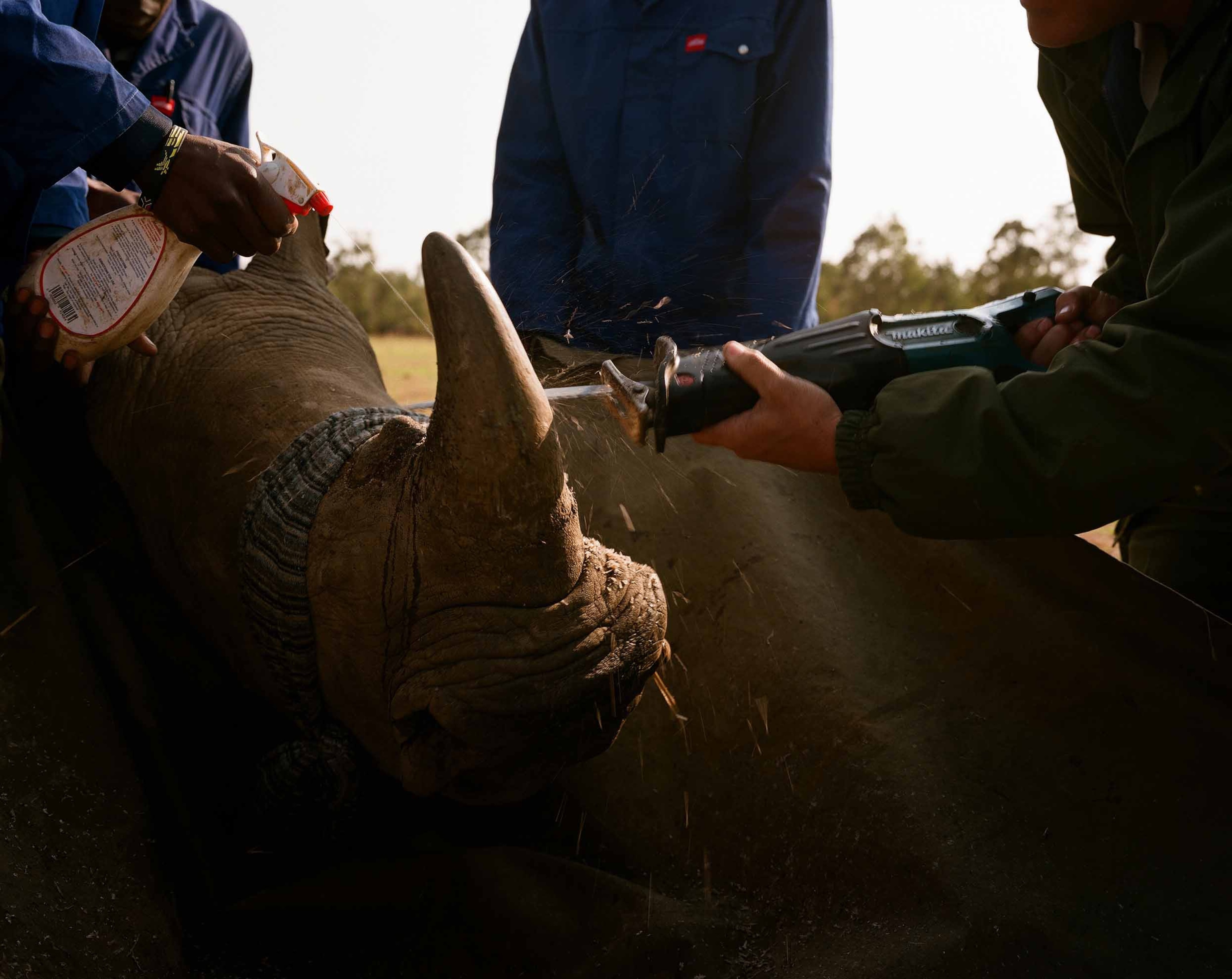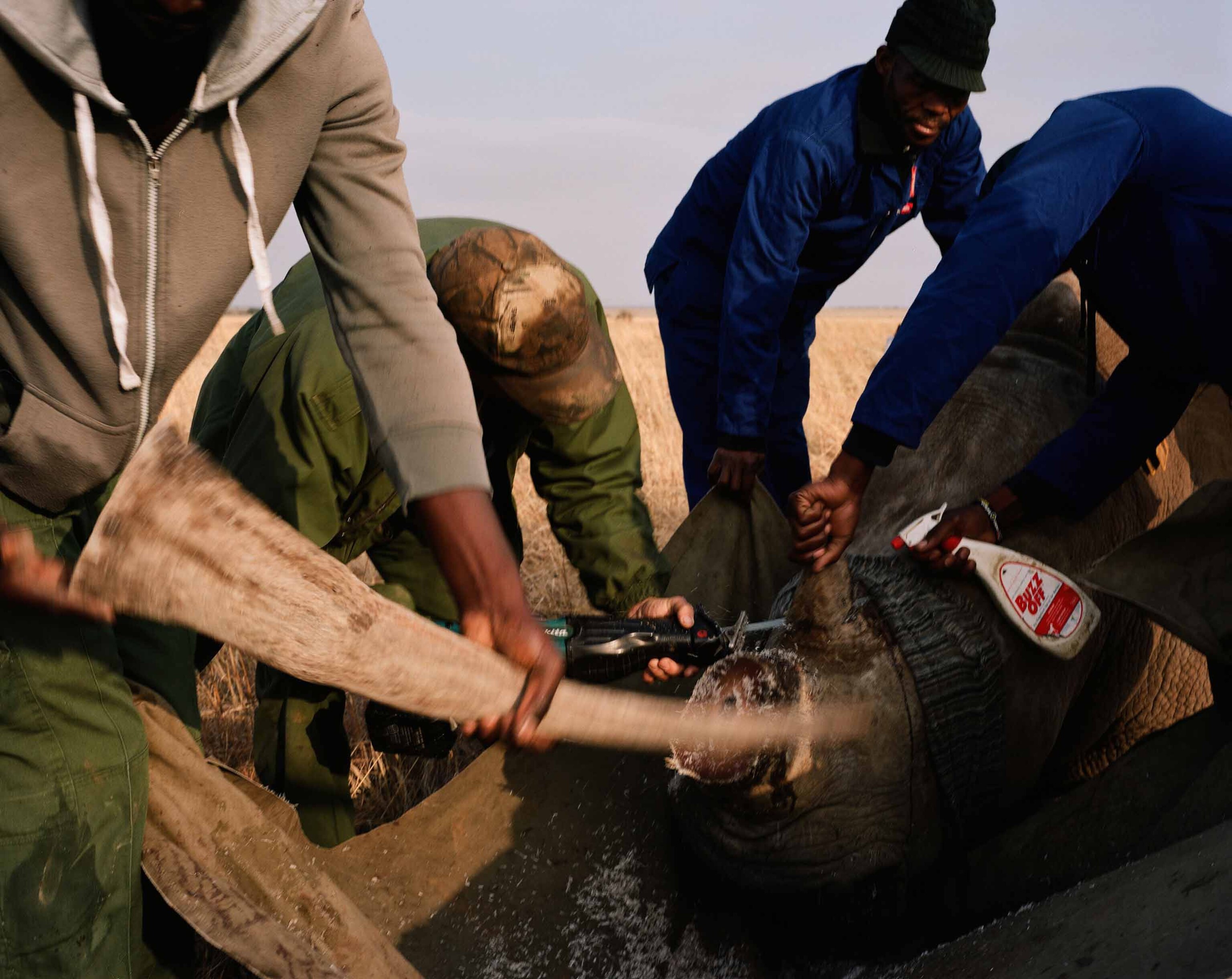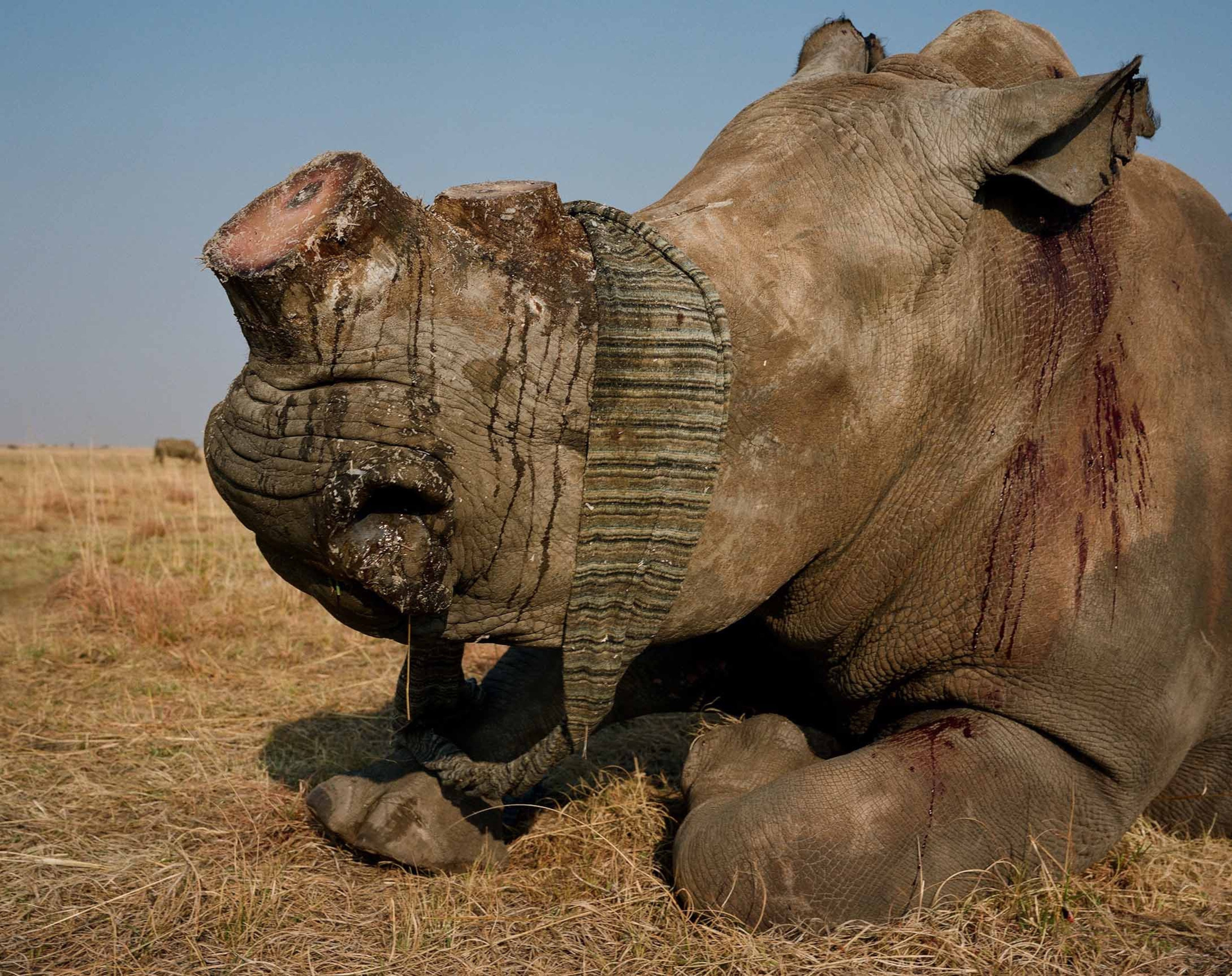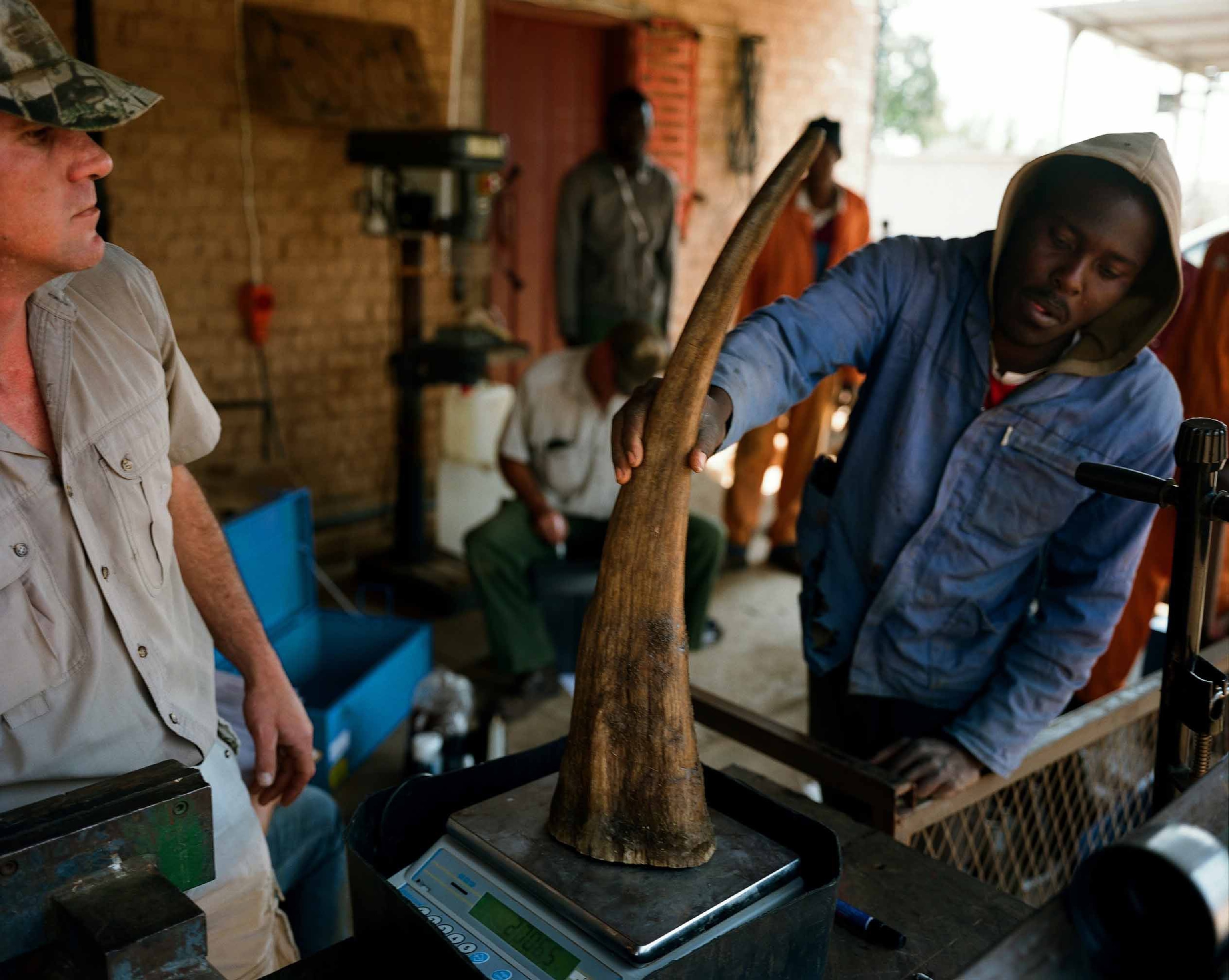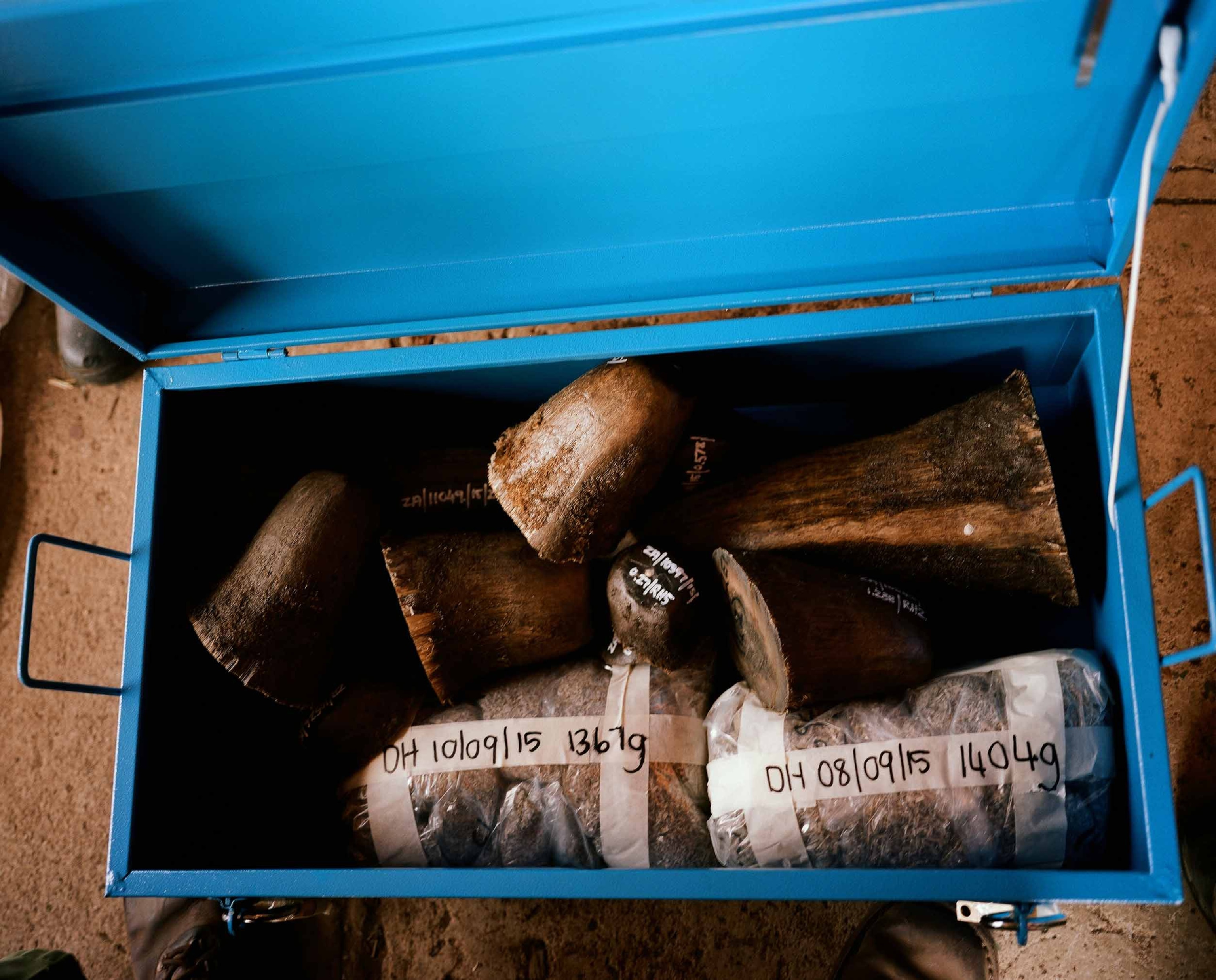An Inside Look at the World’s Biggest Rhino Farm
John Hume, who’s suing South Africa to make trade in rhino horn legal, shows a National Geographic photographer around his property.
John Hume is a South African rhino farmer. He owns more rhinos than anyone else in the world—as of this August, around 1,500. At his farm in Klerksdorp, about 100 miles southeast of Johannesburg, he has a vet who works year-round dehorning them. That’s allowed him to build up a six-ton stockpile of horn, which is more valuable than gold.
South Africa is home to about 70 percent of the world’s rhinos. Poaching has grown substantially, from 13 rhinos in 2007 to 1,054 in 2016. It was a slight drop from 2015, but still an “unacceptable” number, according to conservationists.
Trading rhino horn across international borders has been banned since 1977, but it remained legal within South Africa until 2009. A spike in rhino horn poaching to meet demand from Asia (mainly Vietnam, where a politician claimed rhino horn cured his cancer) encouraged the environment ministry to pass the ban.
But that meant rhino farmers like Hume, who in part made their living from the rhino horn trade in South Africa, suddenly saw the value of their product drop to zero. They couldn’t sell horn anymore. So they sued the government. And a final court ruling in April opened the way for the domestic trade to begin again.
August 23 marks the first day of a three-day web auction held by Hume, who is selling 264 horns to anyone in South Africa who has a government permit to buy them. Hume says that he spends $170,000 a year on security for his rhinos and that proceeds from the sales will help him pay to protect the animals. (Read more about the online auction.)
National Geographic photographer David Chancellor got an inside look at Hume’s farm in 2015.
